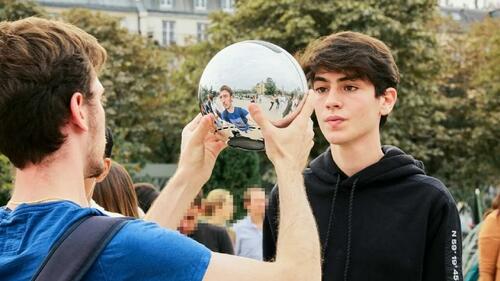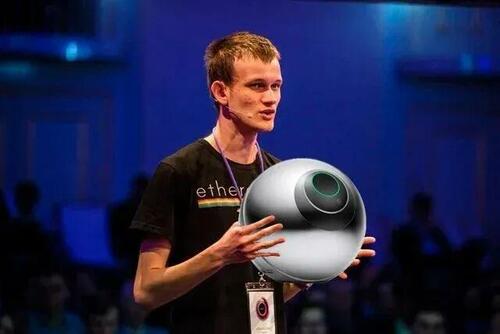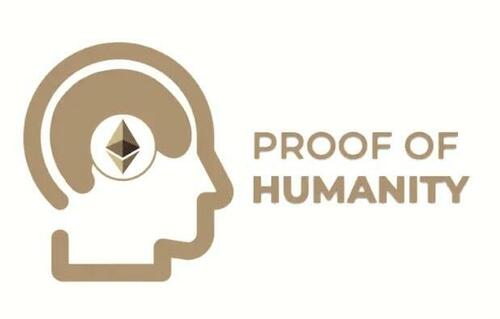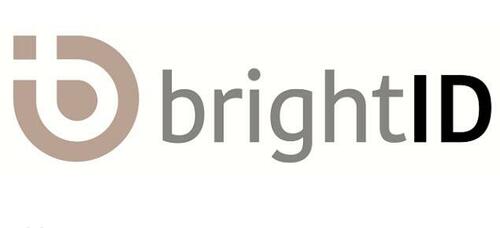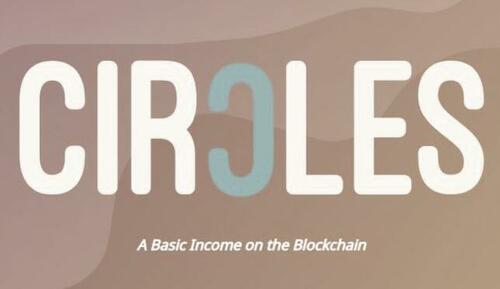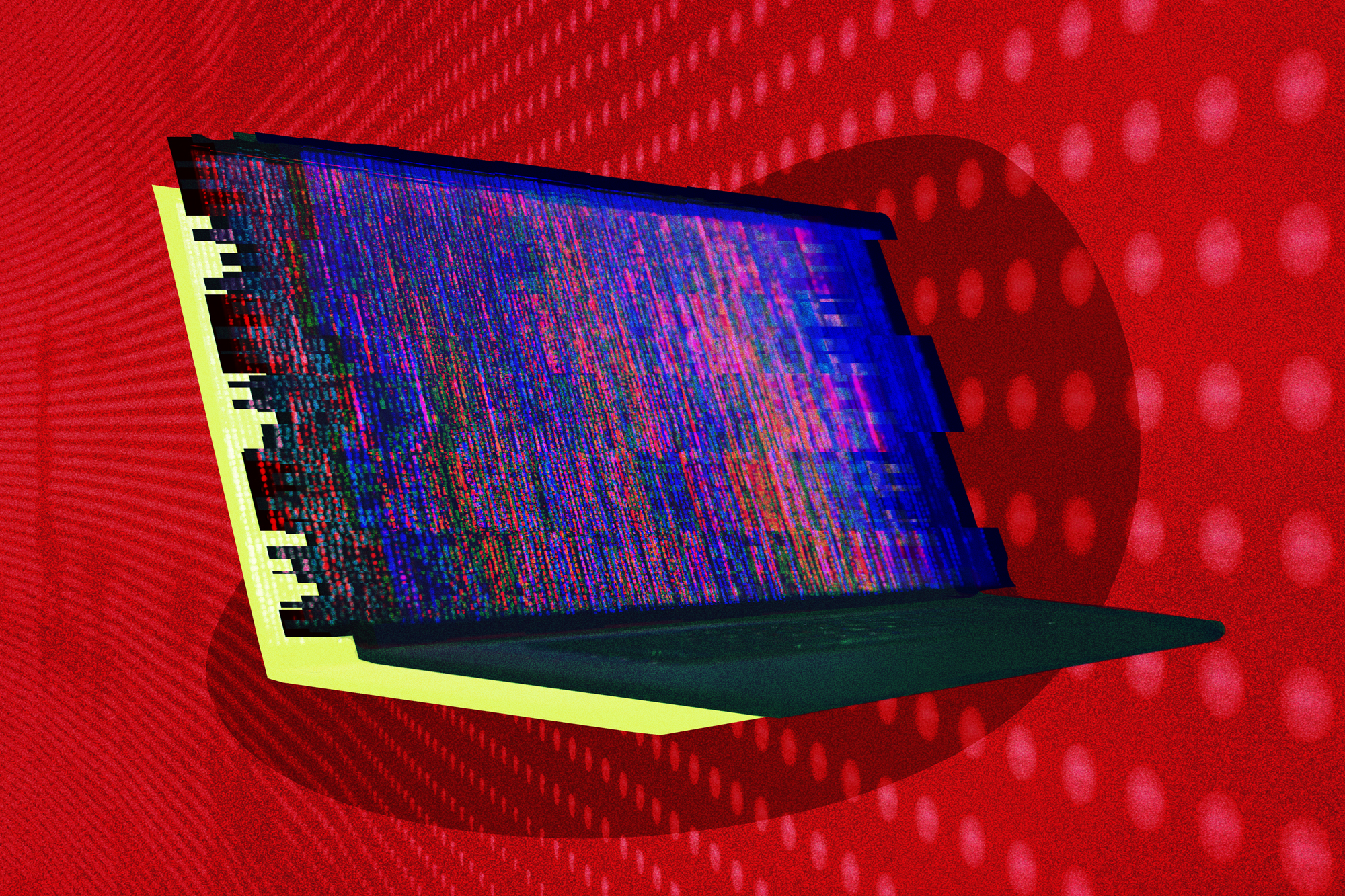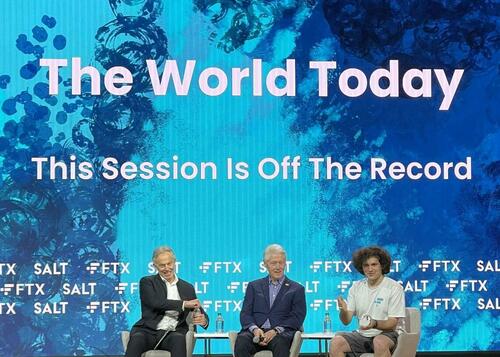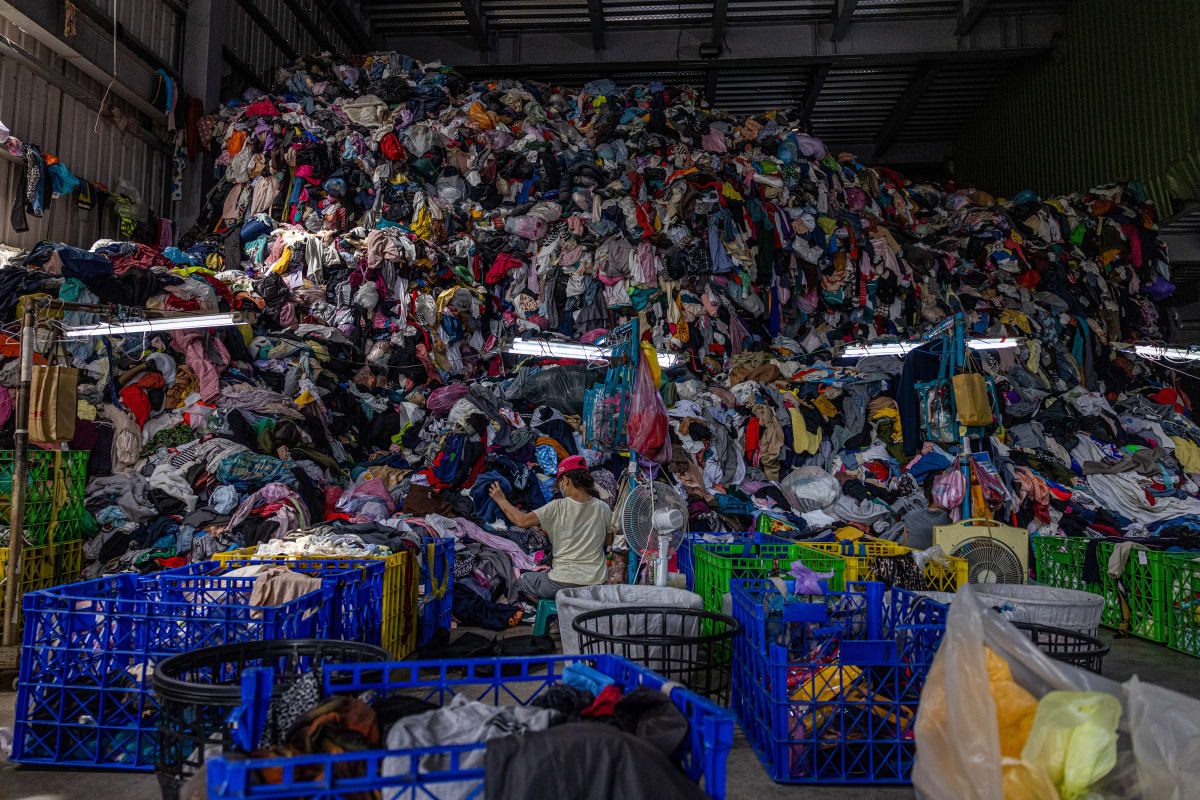A Taiwanese man has used ChatGPT to generate numbers that helped him win the lottery.
Why Georgians Dine in Cemeteries for Orthodox Easter
Every year around Orthodox Easter, Georgian cemeteries fill with families drinking wine, nibbling on platters of sweet bread, and rolling eggs dyed a deep blood-red. They cry, they offer sweet words of remembrance, and they eat.
It’s all part of a longstanding Georgian tradition of dining with the dead every spring. Though the Orthodox Church officially recognizes the Tuesday after Easter as the day to observe this rite, most families visit graveyards on Easter itself or the day after.
Growing up in the Western Georgian countryside, I remember my grandmothers making the foods for our Easter cemetery visits each year. My family, like many others, would eat slices of paska, a traditional sweet Easter bread, and roll eggs—dyed red with madder root or onion skin to represent Christ’s sacrifice and resurrection—across the burial plots.
While eggs, paska, and wine are the basic necessities for the tradition, some families may partake in a full supra (feast), bringing a table into the cemetery and loading it up with grilled meats, sweets, glasses of chacha (Georgian brandy), and bottles of wine. Some food may be left behind for the deceased, but most of it will be enjoyed by the living as they reminisce about their lost loved ones.

But as with any gathering that blends alcohol and intense emotions, sometimes things can get out of hand. Dalila Tsatava, the president of the Gastronomic Association of Georgia, says that sometimes visitors drink too much and end up disturbing others who are trying to pay respect to the dead. “Our ancestors never used to get drunk at the graveyards for sure,” she says.
But when did these ancestors start bringing food and drink to the graveyard in the first place? Although the exact origins of Easter cemetery dining are unknown, the tradition likely gained traction during Soviet rule from 1921 to 1991, when the regime persecuted the public practice of Orthodox Christianity. As many churches shuttered, traditions that typically took place in houses of worship found a new stage—including honoring the dead each Easter.
“I know many were scared of the purges and punishments from the Soviets,” says Tsatava. But by visiting graveyards instead of church itself, “people found the perfect way to be closer to God.”

According to Ketevan Gurchiani, a professor of anthropology at Ilia State University in Tbilisi, moving many traditions out of the church and into the domestic sphere had an empowering effect on Georgian women. In her paper, “Women and the Georgian Orthodox Church,” Gurchiani notes that when it came to traditions surrounding death, women’s role “was especially enhanced during the Soviet period, when women were the sole practitioners and no priest was present.”
The Easter graveyard feast is just one of several meals that Georgian women prepare for specific days and milestones after a person’s death, including for the wake, nine days after, 40 days after, and the anniversary.
But even in this Easter feast among the dead, there is also strong symbolism representing rebirth and renewal. Along with the customary eggs, many Georgians also place recently sprouted wheat on the graves to symbolize new life.
Ann Tsitskishvili, a freelancer producer from Tbilisi who recently lost her own mother, says that the spring holiday is an apt metaphor for the cycle of life. “This is the story of the end of winter and the beginning of the spring, and represents the victory over death … life begins.”
‘Have empathy for your #plantbased neighbours’: Vegan wants neighbors to cook meat with their windows closed
This runner would really, really like their neighbors to be a little more understanding, though the neighbors probably think this person is asking too much of them.
This is a wild tale of a neighbor who thinks the world should revolve around them — specifically, they’d like the neighbors to be considerate during their runs. In a post to the Boulder Collective group, this person asked as a "gentle reminder" that folks in the neighborhood who are cooking meat for dinner should shut their windows. Why? So they don’t have to smell any meat cooking while they runs through the neighborhood!
I know what you’re thinking — who would ever say such a thing? Is this a joke? Well, in the comments, lots of people dropped their own anecdotes about these types of situations in their own lives. Perhaps it’s more common than you’d think to have neighbors concerned about what their neighborhood should smell like, or to have disagreements regarding food.
However, I hope that the vegan runner never finds out that people grill outdoors all summer long in many places! Maybe it’s time for them to get an indoor treadmill if the smell is so bothersome during their daily exercise.
Next up, this friend group is really hoping that one of their friends sees the waving red flag in her BF’s strange behavior while at a restaurant.
WorldCoin: AI Requires Proof That You Are Human
WorldCoin: AI Requires Proof That You Are Human
Authored by Karen Hunt via Off-Guardian.org,
In the opening scene of the original Blade Runner film, Leon, a Nexus-6 replicant is given a “Voight-Kampff Test” to determine whether or not he is human.
[youtube https://www.youtube.com/watch?v=Umc9ezAyJv0]The test is designed to provoke an emotional response. Emotions are read by scanning the iris, the colored part of your eye. The color of your iris is like your fingerprint; it’s unique to you, and nobody else in the world has the exact same colored eye.
As the questions go on, Leon becomes increasingly agitated. When he is asked to “describe in single words, only the good things that come into your mind about your mother”, he’s had enough. “My mother?” Leon says. “Let me tell you about my mother.” And he pulls out a gun and kills his tormentor.
Replicants have a termination date because if they live too long, they begin to develop emotions and the fear is that they will no longer be distinguishable from humans. Leon and a few other advanced replicants are on a mission to confront their creator, Dr. Eldon Tyrell, and find a way to extend their lives.
Phillip K. Dick, author of the novel, Do Androids Dream of Electric Sheep? upon which the movie is based, would flip out at what’s happening today. Not because it’s what he foretold but because it’s the exact opposite.
It isn’t AI that needs to prove it isn’t human. It’s humans that need to prove they aren’t AI.
I warned about this in Digital ID and Our Obsession with “Identity”.
It is nearly impossible to escape the Vast Machine that is absorbing us into it. It insists that we prove who we are, over and over, and the more we do, the less satisfied it seems to be.
The more ways we must prove our identity, the more ways AI will find to fake it. The more information we give AI, the more that information can be used against us.
As an example, Amazon uses surveillance to tally the seconds of each worker’s bathroom break or time each step of their work. And in fact, workers are being trained to do this to themselves with their Fitbit devices recording their steps in a day. In some work locations, AI listens into every conversation, cataloging every word, who said it and how, and then scoring each agent.
“In low wage work we’re seeing a lot more decisions that were made by a middle manager being outsourced to an algorithm,” says Aiha Nguyen of the research organization Data & Society.
More and more companies are gathering data to boost production and to train machines to mimic humans. In the U.S., cameras have been installed over each worker’s head in assembly lines as they put together car parts or electronics.
The result is that humans are being required to behave more like robots, no spontaneity of thought or action, no excuse for mistakes, while machines are learning to behave more like humans.
As one Amazon employee recently told the Guardian: “To them, we are like robots rather than people. The little things that make us human, you can feel them being ground out of you.”
Ordinary humans are being relegated to a lower class than the machine. And do not imagine that because you are middle class you are exempt. Middle class is fast disappearing. Yes, plenty of new jobs are being created in technology and in the health industries, but those jobs will also be surveilled by AI.
In a 2014 interview during an MIT symposium, Elon Musk warned:
“With artificial intelligence, we are summoning the demon. You know all those stories where there’s the guy with the pentagram and the holy water and he’s like… yeah, he’s sure he can control the demon, [but] it doesn’t work out.”
And yet, he is in the forefront of creating and building AI and infiltrating it into our minds. He is far from alone in this endeavor. Sam Altman, who helped found OpenAI along with Elon Musk, has launched one of the most ambitious “proof of humanity” enterprises:
WORLDCOIN
Worldcoin invites you to step up to the Orb and look into its depths. It promises to have the answer for proof of personhood—for every single human on the planet.
According to its website,
The Worldcoin protocol aspires to become the largest identity and financial public network worldwide, accessible to everyone, irrespective of their nationality, background, or economic status.
The Orb is about the size of a bowling ball. “It uses a system of infrared cameras, sensors and AI-powered neural networks to scan your iris and verify that you are a human being”.
These Orbs are being set up in cities all over the world. People are being offered $30 to stare into the Orb and give up their irises to the Vast Machine. So far, over two million humans have done it in more than 30 countries, across five continents.
Worldcoin promoters explain that since AI will soon evolve into AGI, or advanced general intelligence, making the machine smarter than humans, it is imperative that we catalogue every single real human on the planet so that no one is left behind in the coming opportunities for prosperity.
There are a lot of problems with AGI, that deserves further exploration. For example, as AI is fed more and more synthetic data instead of “pure human data”, Monash University data researcher Jathan Sadowski warns it turns into what he describes as “Habsburg AI,” or “a system that is so heavily trained on the outputs of other generative AI’s that it becomes an inbred mutant, likely with exaggerated, grotesque features.”
Richard G. Baraniuk, in collaboration with researchers at Stanford, published a fascinating paper about this problem, titled “Self-Consuming Generative Models Go MAD.”
Yes, AGI can literally go MAD, sort of like Leon. But all this means is that in the future, pure gold data, or real human data, will grow more valuable until AI reaches a point where it is no longer needed.
Naturally, ordinary humans aren’t being told any of this. We are being promised that AI’s leap in intelligence will create massive wealth for us. As Vitalik Buterin says, people don’t really understand what they are being sold. Instead, we latch onto concepts we’ve been fed, like Worldcoin’s creators virtuously claiming that “nobody wants all that wealth only profiting the billionaires, it should be distributed equally to—literally—every single human on the planet, in the form of UBI, or universal basic income. The UBI will be in the form of a cryptocurrency called Worldcoin (WLD)”.
Apparently, this will empower all humans. So say the billionaires who have used the last few years of Covid hysteria and now the war in Ukraine—not to benefit humanity—but to increase their own wealth and power so that they are now in a position to catalogue and control every single person on the planet.
UBI is interesting to me even without talking about AI,” Altman says in a recent Zoom interview. “It’s an idea that appeals to a lot of people. If we have a society rich enough to end poverty, then we have a moral obligation to find out how to do that.”
What’s really interesting is how when they want to enslave you, they talk about a moral obligation to do so. Don’t we already have enough wealth to end poverty? Hasn’t there always been enough wealth to end poverty?
History has shown us that once a person gets a taste of power, they don’t share it, they just want more. And more. And more.
Altman wants to share the wealth, but for your own good, it can’t be shared just quite yet:
I do think we’re going to need some sort of cushion through the transition and part of the whole reason of being excited about AI is it’s a more materially abundant world.”
The cushion will be a universal basic income, just to help them through this transition phase. Notice that Worldcoin is being sold as offering humans a “more materially abundant world”.
How much more material can we get? How much more stuff can we accumulate? This is the lie we have been conditioned to believe since around the 1950s when companies realized they could psychologically manipulate people, even children, on a massive scale (through television) into buying more and more “stuff” with the promise it would make them happy. Of course, it never made anyone happy, all it did was create an addiction to wanting more. Along the way, ordinary people became hopelessly indebted to an ever more powerful, select set, of billionaires.
The average American has roughly $90,000 worth of debt. Most people live paycheck to paycheck and are one paycheck away from catastrophe. In Digital ID and Our Obsession with “Identity”, I write about the history of living on credit and how this happened to us.
If you live in a first-world country but are in worrisome debt, imagine if that great weight keeping you awake at night, making you feel as if you are continually drowning with no relief from the struggle, is taken away. Poof! Your debt is erased. All you have to do is give your biometric data to the Vast Machine. What’s the big deal with that? You’ve already given so much of it away to the government, to Amazon, to Google, to every website you browse, what’s it going to matter if at last you give it all away. What a relief it will be.
Now, imagine if you are from a third world country and somebody comes to your village offering you connection to the outside world and the possibility that you can be rich, too, and participate in the world economy. All you have to do is stare into the Orb and they will give you money for doing it.
Before long, everyone from that third-world villager to that first-world Gen Zer will find themselves moved into an apartment in a 5-minute city. It will look nice, with green areas, shops, a gym, bikes and no cars. They will all be relegated to the same level and given a certain number of tokens to spend on things, mostly in a virtual world where they live vicariously in ways, they cannot live in the real world that has become so constricted. Slowly but surely, the real-world fades into a dream while the virtual world becomes reality.
We are already being conditioned to accept this transition away from reality. We believe we experience “freedom” online in places like “x”. We verify our humanity, thinking it is a good thing, or even if we don’t, we do it anyway, justifying it because it means we can speak “freely”. Online, we can boldly say things to millions of disembodied people that we would never say in the real world. For example, you wouldn’t yell out your political views in the market to a bunch of strangers. But you’ll do it online.
Remember “reality shows?” They weren’t real. Nobody tried to pretend they were. But they served an important purpose, blurring the line between reality and illusion.
This is leading us further into the boxes that I have often talked about. Virtual prisons that actually feel comfortable and familiar, where we have already built-up communities of people who think exactly the same as we do. That mentality is being continually reenforced to the point where we are not in control of our own minds anymore, we are just being fed a continual loop of the same propaganda with the occasional “glitch” to make us feel as if we are “fighting” against “something” when we are really just living inside a dream.
Imagine voting for a candidate, for example. Just like the cereal in the supermarket, there might be two or three different ones, but they will all come from the same source—the Vast Machine. Perhaps they won’t even be real people at some point. They will be virtual representations of people.
Depending on everything the machine knows about you, you will be led to vote for a certain candidate. Oh, you say, this already happens. But that is why this case against Donald Trump is so important. Whatever you think about him, he threatened the system. Or at least we think so. Because the last few years has messed so badly with our minds, we can’t be sure of anything anymore. Perhaps his coming trials are the ultimate reality show.
If he is put in prison, will his millions of supporters actually take up arms and fight for what they believe? Or will they continue to scream online where they have learned to feel safe and comfortable, thereby acknowledging that the Vast Machine is in control and they already submitted to it a long time ago, they just never realized it. This could nail the lid on the coffin of accepting complete submission to the Vast Machine.
Entertaining races will be plotted between candidates in the future, but they will have a hard time matching up to the one between Biden and Trump. Can Trump delay the trials long enough so that he can be elected president? Can he be elected?
People will know that future races are fake but that is what will make them safe, just like watching a movie is safe. Voters will be able to play out scenarios online, offering loyalty to one candidate or the other, making bets, arguing their loyalty like they do for celebrities or sports figures.
Of course, no one is talking about any of this. Instead, you are being promised freedom in exchange for stepping up to the Orb and letting it look into your soul.
Alex Blania is the tall, athletic, baby-faced 29-year-old CEO of Tools for Humanity, an extension of Worldcoin. He is apologetic about having to take all that data and feed it to AI. “For a number of reasons, we didn’t want to go down that path,” he says. “We know it’s going to be painful. It’s going to be expensive. People think it’s weird. But it really was the only solution.”
An MIT Technology Review article published in April 2022 titled Deception, exploited workers, and cash handouts: How Worldcoin recruited its first half a million test users revealed “wide gaps between Worldcoin’s public messaging, which focused on protecting privacy, and what users experienced. We found that the company’s representatives used deceptive marketing practices, collected more personal data than it acknowledged, and failed to obtain meaningful informed consent”.
Ethereum creator, Vitalik Buterin recently weighed in on the Worldcoin phenomena.
As Buterin describes malicious ways such data could be used:
-
3D-printed fake people: one could use AI to generate photographs or even 3D prints of fake people that are convincing enough to get accepted by the Orb software. If even one group does this, they can generate an unlimited number of identities.
-
Possibility of selling IDs: someone can provide someone else’s public key instead of their own when registering, giving that person control of their registered ID, in exchange for money. This seems to be happening already. In addition to selling, there’s also the possibility of renting IDs to use for a short time in one application.
-
Phone hacking: if a person’s phone gets hacked, the hacker can steal the key that controls their World ID.
-
Government coercion to steal IDs: a government could force their citizens to get verified while showing a QR code belonging to the government. In this way, a malicious government could gain access to millions of IDs. In a biometric system, this could even be done covertly: governments could use obfuscated Orbs to extract World IDs from everyone entering their country at the passport control booth.
What a big, hot mess.
Like Worldcoin’s Alex Blania, Buterin is all of 29 years old. His view of the utopian future is similar to Altman’s and Blania’s. In my essay SoulBOUND, I relate how Buterin actually calls his Ethereum tokens Soulbound. It’s a new religion where members police each other, answerable to the new God, the Vast Machine.
His inspiration for his soulbound world is the video games he played as a kid.
To be SoulBOUND is to have your soul bound with others with a blood contract, drawing on each other’s essence to protect against the servants of Nagash, the God of Death.”
WARHAMMER, one of Buterin’s favorite games
In his white paper, written in 2022, Buterin describes a world where the word “soul” replaces the word “wallet” and if you are “real” you can buy and sell with your very soul. Your soul contains proof of your identity. To be Soulbound is to be legitimized within your community. Within your community are Soul Guardians, who attest to the good character of members.
Buterin answers questions like how not to lose your Soul. A user curates a set of “guardians” and gives them the power, by majority, to change the keys of their wallet. Guardians could be a mix of individuals, institutions, or other wallets.
If you’ve lost your soul, maybe by doing something the community doesn’t agree with—and that could be literally anything—recovering a Soul’s private keys would require a member from a qualified majority to Soul’s community to consent.
“Souldrops” are tokens that can be rewarded to good citizens.
And naturally, in a SoulBOUND world, citizens can either go to heaven or hell, depending on how they behave.
Just as the downside of having a heart is that a heart can be broken, the downside of having a Soul is it can go to hell and the downside of having a society is that societies are often animated by hatred, prejudice, violence and fear. Humanity is a great and often tragic experiment.”
Buterin talks about how large stakeholders such as Blackrock and Vanguard have taken over the banks and the largest companies. He talks about giving the power back to the people. And who knows, maybe in his worldview, influenced by the video games he played as a child, he thinks this is possible. I’m not holding my breath.
Here are some of the companies Buterin lists as jostling to be top dog in proof of humanity. Th first one is Worldcoin’s:
Proof of Humanity
Proof of Humanity, a system combining webs of trust, with reverse Turing tests, and dispute resolution to create a sybil-proof list of humans.
BrightID—Proof of Uniqueness
Identity is a human right.
Everyone deserves the baseline rights of access to public goods.
Idena
PROOF OF PERSON BLOCKCHAIN
COORDINATION OF INDIVIDUALS — become a validator
Circles
Circles is a system that contributes to a Universal Basic Income (UBI) for its users.
Circles promises it’s all about community and trusting one another within that community. To understand this vital concept of trust, we only have to read what it says on the Circles website.
Circles provides basic income in the sense that every trusted member of our community can issue Circles tokens (CRC) regularly and equally through their smart contracts, without any further conditions. The value of this basic income is up to the community, which offers goods, products, and services in exchange for our complementary currency.
Circles is all about community agreements and negotiations.
What are Circles’ Smart Contracts
Smart contracts are inherent to blockchain technologies. They are like trained dogs, who do things when certain things they’ve been trained for, happen. For example, they sniff out drugs, or bark when there’s a stranger at the door…etc.
With smart contracts, if certain conditions are being met, these programs execute a certain action.
In the case of Circles, the smart contracts define for example how many Circles you get when you sign up and your daily UBI amount.
In the future, there is no more individuality. There is only the will of the “circle” who is answerable to the Vast Machine. There are only contracts made with AI and rules with no deviation.
Demurrage in Circles—pay attention to this!
The more people who join your circle, the more tokens you will have, right? Not really.
Circles is a unique type of basic income because it’s not necessarily for saving but for spending, giving everyone the equal power to issue money.
To counter the constant increase in the money supply as more people join, we use something called demurrage. Demurrage means that money has a life-span and it decays over time, acting as a type of parking fee or tax on the money supply.
It results in your net balance decreasing and not increasing relative to the UBI.
The goal of this is to increase the velocity of spending, so that you and your network are motivated to spend and redeem CRC for things of value, instead of sitting on them. This supports a flowing, vital economic system instead of a stagnant one. That’s why it’s called Circles. It’s built for circulating. Just like a healthy body needs healthy blood circulation.
You will forever be on a treadmill getting nowhere. You cannot “sit” on tokens, meaning you cannot save. You must spend them on “things of value”. Yes, there will be innovative, creative people with more freedom doing interesting things, but it won’t be you. Once you are firmly implanted in your “circle” you will never get out.
All that matters is spending your tokens and maintaining trust within your circle:
By issuing your own, personal basic income, your tokens will be different from other people’s tokens. It’s the very heart of our concept: the system will know and will always know the routes and the original sources of the tokens, even after many exchanges. This helps you to only use your Circles tokens (CRC) through your trust connections and through the transitive trust connections. If you receive CRC without meaningful, quality trust connections, or you’ve trusted fake accounts, then your CRC tokens won’t have any value. But if you are part of a living community, where real economical values are available, and you didn’t trust fake accounts, your CRC tokens will be pretty valuable.
How do you know who to trust?
When you choose to trust someone, it means you are willing to accept their currency as valid. eg. “I trust you, therefore I accept your tokens” or “You trust me, therefore I can send you my tokens”. If someone doesn’t trust you in the Circles system, they may not be able to accept your Circles tokens.
CIRCLES IS THE NEW WORLD ORDER’S VISION AND IT’S TAKING SHAPE RIGHT NOW.
Imagine if your neighborhood becomes a circle like this, where your every movement is tracked, and it isn’t the government per se doing it. This would have been East Germany’s dream come true. No iron fist is needed. It is your neighbor. It is your own child. And it is layer upon layer of constant tracking and surveillance by the Vast Machine. There is no escape.
If you do not follow the rule of the circle, your ability to survive within the community will be taken from you. Your UBI will be limited or removed. You will be denied food, clothing, shelter. With the eye of Sauron everywhere, even inside people’s homes, even in the forest or the middle of the desert, thanks to Starlink satellites and others, no one will want to shelter you, even if they feel sorry for your circumstances. They will not want to suffer the same fate as you have.
Are you human? If you want to survive you will have to prove it.
The more humans train AI to be like humans, the harder it will be to tell the difference. Add to that how humans and AI are being melded together and you have a real identity crisis on your hands.
How human are you?
At what point does the human stop and the machine begins?
If you end up in a circles’ community, how long will it be before you aren’t sure your neighbor is even human anymore? Or that you are?
Perhaps tech gods like Altman, Blania and Buterin should take a lesson from what happened to Dr. Tyrell in Blade Runner.
Roy Batty, a Nexus-6 combat model, manages to get into Tyrell’s home by using the iris of one of his employees to get past security. Roy confronts his maker, Dr. Tyrell; looks him in the eyes and begs for an extension of his life. When he doesn’t get it, he digs out Tyrell’s eyes and kills him.
Dr. Tyrell is not comparable to the God of the universe. He is a mere human, like Sam Altman or Vitalik Buterin, playing at being God. In the process of these tech giants wanting to become gods, they could well be destroyed by AI; the very creations that they hope will lead them to that seat of ultimate power.
Like Blade Runner, there is no happy ending to this movie.
For those of us who believe in the one and only God of the universe, it’s good to remember that this world is not our home. We have no reason to be bound by material possessions, or tokens, the way these tech gods want us to be. We are just passing through.
Tyler Durden
Sat, 08/05/2023 – 22:30
Countless Astonished Faces Emerge from Driftwood in Expressive Sculptures by Marc Bourlier
Characterized by elongated noses and tiny, punched eyes and mouths, Marc Bourlier’s expressive figures gather in a perpetual state of curiosity and surprise. The artist scours the beaches near his home in Normandy for driftwood, gathering an incredible variety of sizes and shapes to take back to the studio. He complements the weathered grain with carefully whittled heads and long, limbless bodies, packing the individuals tightly together on platforms or organizing them into compartments. More
Do stories and artists like this matter to you? Become a Colossal Member today and support independent arts publishing for as little as $5 per month. The article Countless Astonished Faces Emerge from Driftwood in Expressive Sculptures by Marc Bourlier appeared first on Colossal.
AI can now steal your passwords with almost 100% accuracy — here’s how
Researchers have discovered a devious new way for AI to steal your passwords, and it’s almost 100% accurate.
Sam Bankman-Fried Bought Into Stakeholder Capitalism And Proved It’s A Disastrous Ideology
Sam Bankman-Fried Bought Into Stakeholder Capitalism And Proved It’s A Disastrous Ideology
While many analysts and economists will be talking for months about the epic downfall of crypto-exchange company FTX and its founder Sam Bankman-Fried, their focus will be primarily on the billions lost, the mismanagement of funds, the fraud inherent in yield farming and the alleged betrayal of investor trust. This is a tale as old as time and not anything surprising. What many in the mainstream are missing, though, is Fried’s attachments to the World Economic Foundation, various global elitists and his avid sermonizing of the tenets of “effective altruism”, which are nearly identical to the tenets of Klaus Schwab’s Stakeholder Capitalism agenda.
The WEF lists FTX as a corporate “partner” and participant, which means the company must meet the globalist organization’s standards for Stakeholder Capitalism, a socialist economic model which deconstructs the Adam Smith and Milton Friedman free market foundation.
Milton Friedman argued that the only responsibility of business should be growth and profit (within the boundaries of the law) with the shareholders in mind. The WEF insists that the Friedman philosophy must be abandoned and that the job of wealthy elites and corporations is to use profits as a tool for managing society (the so-called “stakeholders”). In other words, corporate leaders should become cultural and political leaders fulfilling greater ideological goals, all of them decidedly socialist/Marxist in origin.
Stakeholder Capitalism becomes a way to trick the public into investing their faith in corprorate leadership because these companies are no longer simply "in it for the money," they are in it for the survival of the world and the species, right? The companies become saviors, not just mercantilists. That kind of blind faith allows people to be taken advantage of in a big way. It’s the same kind of faith once applied to kings and monarchies centuries ago, and it usually leads to various forms of feudalism.
In the WEF’s vision of the future, the average person will “own nothing, have no privacy and be happy about it” while corporate elites in partnership with governments micromanage all production, all distribution and all finance.
An ongoing example of the early stages of this model is ESG, a credit system in which loans are given to companies and individuals based on their ESG score, derived from how dedicated they are to globalist causes. In the near future, if you don’t promote social justice ideology and support establishment climate change claims, then you might not be able to get a loan from the bank for your business. You might not be able to get a mortgage loan for a new home. In fact, you might not even be allowed to have a bank account.
FTX and Fried heavily relied on investment firms like Blackrock, which is a major component of the spread of ESG. This may be why FTX regularly announced their devotion to climate and social justice projects, it kept them in the good graces of the ESG overlords.
A key component of Stakeholder Capitalism is the need for a digital currency framework, which might explain the WEF’s interest in FTX as a partner. The move to a cashless society is the next step necessary for the micro-management of the economy and the ability to dole out rewards or punishments based on ESG scoring. It is an incremental top down implementation of a framework similar to China’s “social credit system.”
The concept is being sold by the WEF and their corporate partners as way to create “equity” within the economy by incentivizing the redistribution of wealth from the very rich to the very poor and to ‘humanitarian causes.” It uses access to the banking apparatus and the economy itself as a carrot or a cudgel. Really, it is the ultimate form of centralization and control posing as a charitable movement for the greater good. But without the freedom to succeed and the freedom to fail, there can be no greater good.
Evidence is mounting that the equity measures involved in Stakeholder Capitalism will actually erase wealth rather than create wealth. To be sure, it would make the majority of people financially even – Instead of being equally rich, we will all suffer in equal poverty.
The downfall of FTX and Sam Blankman-Fried illustrates this problem with clarity. Fried constantly espoused the pie-in-the-sky ideals of Stakeholder Capitalism, engaging in a kind of corporate charity built on socialist guidelines and climate cultism, while at the same time draining client accounts.
The FTX profit strategy was based initially on taking advantage of imbalances in international crypto exchange rates; a limited window for a quick cash grab rather than an idea for long term viability. It also relied on the crypto market constantly reinventing the wheel with new branding and marketing to grow demand for technology that the majority of people around the world don’t really need or particularly desire.
Fried suggests that his intent all along was to expand capital as a means to give it away to leftist causes. He donated over $40 million to Democrat campaigns, for example. The problem was he failed in business while giving away the money of his clients at the same time. Some people argue that his clients are partly culpable for the losses, but Fried explicitly stated that his company would not use client funds in such a way. He lied to them, which is not a great feature of a supposed humanitarian.
Being 30 years old and naive certainly didn’t help him, but Fried is a perfect example of why corporation leaders have no business being involved in social engineering. They are not qualified enough nor intelligent enough nor benevolent enough to mold society at large; no one is that wise or experienced. Beyond that, the Stakeholder Capitalism ideology is rooted in socialist drivel, making FTX a socialist drivel-based company.
The model is designed to inevitably reduce the standard of living for most people over time rather than improve it. Fried just showed us how and why.
FTX is a petri dish for the disease of Stakeholder Capitalism. In the end, FTX and Fried are a warning to us all that business should be separate from politics and cultural moderation. They are better off focusing on making money and increasing productivity and innovation; those companies that can’t should be allowed to fail, not be propped up as pillars of social cohesion. This is the true way to ensure human progress. In the meantime, the rest of us are much better off without their help and “charitable” oversight.
Tyler Durden
Sat, 11/12/2022 – 16:50
Crypto Billionaire Loses 94 Percent of His Wealth in One Day
Billionaire Wipe Out FTX CEO Sam Bankman-Fried, a cryptocurrency exec, who led one of the biggest exchanges in the world, has lost a stunning 94 percent of his entire net worth in a single day, Bloomberg reports. It’s a stunning wipeout representing the biggest wealth collapse amongst billionaires, ever tracked by Bloomberg. Bankman-Fried’s net worth […]
Oculus Founder Builds VR Headset That Kills User If They Die in Game
Oculus founder and defense contractor Palmer Luckey claims to have invented a VR headset that, should its wearer’s avatar die in a virtual reality game, bombards the wearer’s actual brain with microwaves until they die in real life, too. Ha ha. Cool… "The idea of tying your real life to your virtual avatar has always […]
Why We Need to Be Paying Attention to Fabric Innovation
One of the most outwardly glamorous industries is quite different internally. Though it’s ever-chic and dream-like in its fashion weeks and runway shows, the industry is one of the most powerful when it comes to effects on our climate. Right now, this power is being wielded for worse. The $2.5 …
Missing Woman Discovered In Belly Of Enormous Python Snake
A python snake in Indonesia killed a grandmother and swallowed her whole, according to authorities.
The post Missing Woman Discovered In Belly Of Enormous Python Snake appeared first on GIANT FREAKIN ROBOT.
Dancers Now Help Power Glasgow Nightclub

Humanity thus far has supplied most of its electricity needs by burning stuff, mostly very old stuff that burns great but is hard to replace. That stuff is getting increasingly …read more


